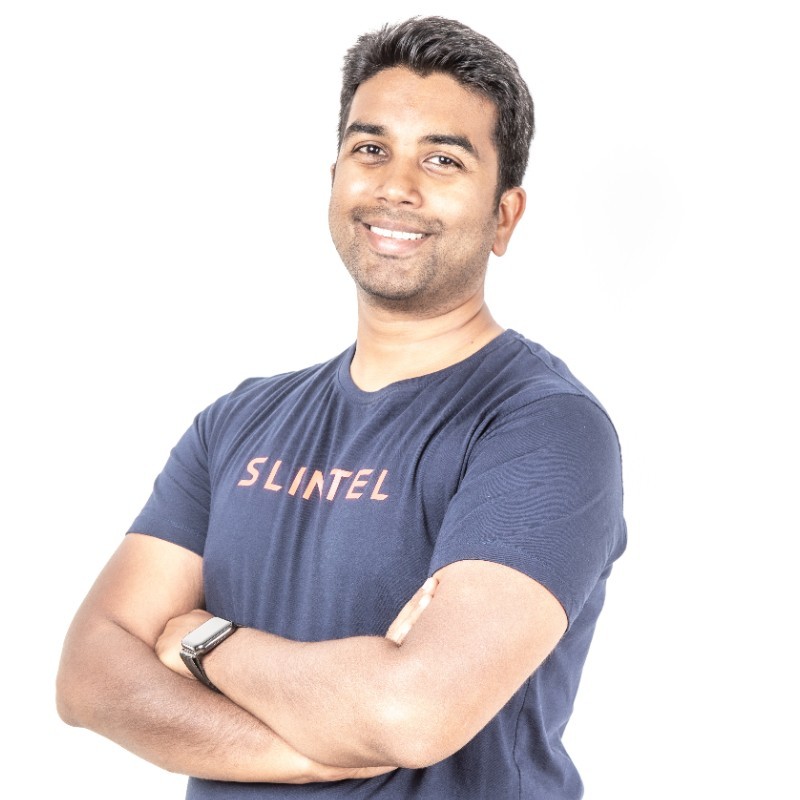🎙️ Episode Snapshot
In this thought-provoking conversation with Krishna Mehra, an accomplished entrepreneur and engineering leader with experience at Meta, Cohesity, and Microsoft, Deepak explores the evolving AI landscape through the lens of someone who's seen it from multiple angles. From founding two successful companies (B2B and B2C) to leading engineering teams at scale, Krishna shares practical wisdom on product-market fit, engineering in the AI era, and how to think about AI-driven product development. His unique perspective from Meta's AI transformation offers valuable insights on how to navigate the rapidly changing technology landscape.
Topics Discussed
- Krishna's entrepreneurial journey from founding Capillary and Tarot to leadership roles at Cohesity and Meta
- Product-market fit as an ongoing journey rather than a one-time achievement
- How Meta leverages AI beyond just recommendation systems
- Engineering leadership in the era of rapidly evolving AI capabilities
- The jobs-to-be-done framework for product development decisions
- Balancing customer requests with long-term AI innovation
- AI's role in improving product adoption and user experience
- The fragmentation of AI capabilities into job-specific tools rather than all-purpose replacements
- Advice for entrepreneurs building in the AI space
Key Quotes + Ideas
"Product market fit is not a point in time construct... it's very much a work in progress and something you need to keep working on through the life of the company."
Krishna challenges the common misconception that finding product-market fit is a one-time achievement. Instead, he frames it as a continuous journey that requires constant iteration as markets evolve, products change, and external conditions shift. Drawing from his experience at Capillary, he explains how their strong fit in India didn't automatically translate to international markets - they had to reassess and adjust. This perspective is particularly relevant in the AI era, where the pace of change is accelerating and yesterday's perfect solution might quickly become outdated.
"The AI platform shift is very much in the works, still happening at extremely rapid pace... a lot of what we write right now will probably get thrown away. So instead of worrying about it, I think it's better to embrace it and help iterate more quickly."
As an engineering leader who witnessed AI's evolution at Meta, Krishna offers a refreshingly pragmatic approach to building in times of rapid technological change. Rather than fighting the inevitable obsolescence of today's solutions, he advises embracing it - planning for frequent rewrites and focusing on quick iteration rather than long-term technical debt concerns. His recommendation to "assume the models will get 10x better in the next year" provides a concrete framework for making architectural decisions amid uncertainty. This perspective helps engineers and leaders avoid analysis paralysis and keep moving forward despite the shifting landscape.
"The way people approach these AI employees is like it replaces this person fully, and I don't think that's quite how it works... An engineer has at least 100 different jobs to be done. What I don't know is if we'll have one AI engineer that can do everything."
Krishna offers a refreshingly nuanced view on the future of AI in the workplace. Rather than the common narrative of wholesale job replacement, he suggests we'll see a fragmentation of capabilities - specialized AI tools that excel at specific "jobs to be done" rather than generalized AI workers. This perspective gives us a more realistic framework for thinking about AI adoption: identifying the discrete tasks within a role that could benefit from automation or augmentation, rather than expecting complete replacement. It's a view that aligns with how technology has historically integrated into workplaces - augmenting specific functions rather than wholesale replacement.
Key Takeaways
- Continuous product-market fit: Success requires ongoing recalibration of your product to evolving market needs, not just a one-time achievement.
- Embrace rapid AI evolution: Build with the assumption that models will improve 10x yearly, making architectural decisions that anticipate frequent changes rather than fighting them.
- Apply the jobs-to-be-done framework to AI integration: Focus on understanding the outcomes customers need rather than how they ask you to solution it, which opens space for innovative AI implementations.
- Think portfolios, not singular roadmaps: Balance immediate customer needs with longer-term innovation by maintaining separate tracks and teams focused on different time horizons.
- AI adoption will be task-specific, not role-replacive: Rather than complete job replacement, we'll see specialized AI tools that excel at specific tasks within a role, creating a toolkit of capabilities rather than a single AI replacement.
If any of these insights about navigating the AI revolution resonated with you, check out the full conversation with Krishna to hear more about building and leading through technological transformation.




